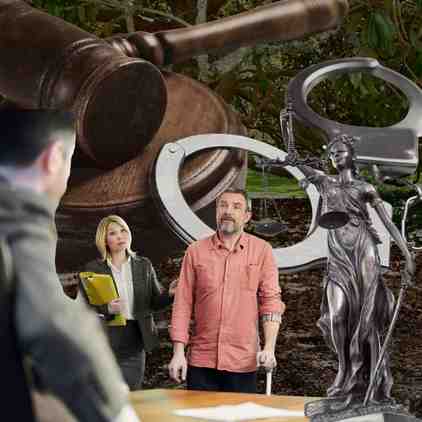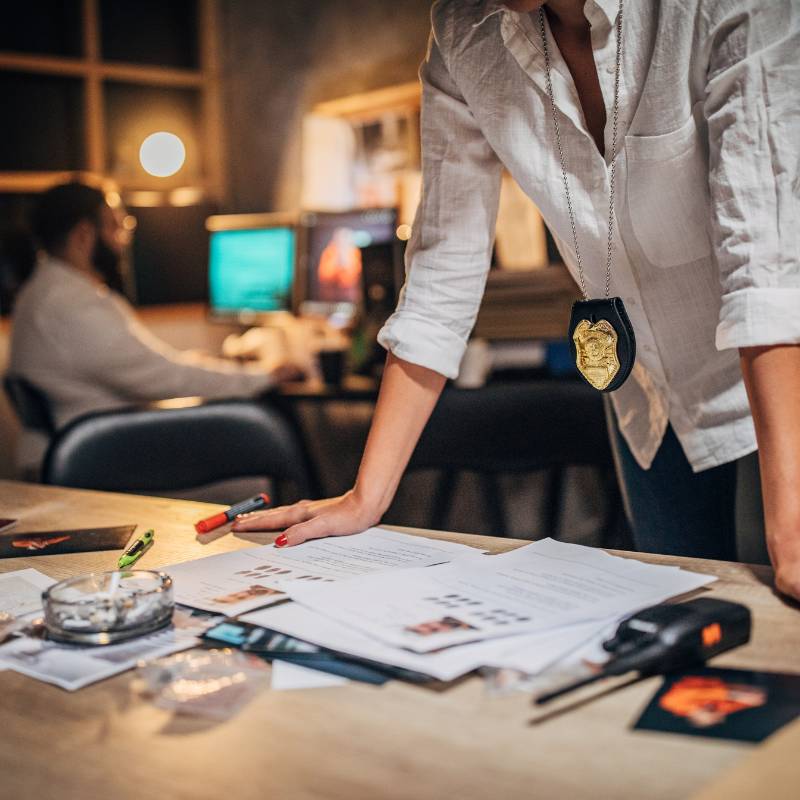
Our criminal defense lawyers are experts in criminal trial procedures, dedicated to providing exceptional legal representation in all aspects of criminal litigation. With extensive experience in criminal law and procedures, we offer unmatched expertise, strategic advocacy, and a client-focused approach to secure the best possible outcomes for our clients.

When facing criminal charges, the criminal trial procedure can be complex, overwhelming, and fraught with uncertainty. In addition our criminal defense lawyers specialize in criminal trial procedure and are committed to navigating every phase of your trial with expertise, precision, and dedication. With years of experience in defending clients at all stages of criminal trials, we’re here to ensure your rights are protected and that you receive the aggressive representation you deserve.
We handle a wide range of criminal cases, providing expert defense strategies for a variety of criminal charges, including but not limited to:
The criminal trial procedure is long, complicated, and fraught with risks, but with criminal defense lawyers by your side, you have an experienced team that will fight aggressively to protect your rights every step of the way. From the initial investigation to post-conviction appeals, we offer strategic and comprehensive criminal defense.
Don’t wait if you or a loved one is facing criminal charges, contact Ahmed Ali Dewan & Co. criminal defense lawyers today. Schedule a free consultation to discuss your case with our expert criminal defense attorneys. Let us put our experience to work for you, ensuring the best possible outcome for your case.
A Criminal Trial Procedure is a structured process where the jury determines the defendant’s guilt. Additionally the prosecution presents witnesses and evidence to prove the charges. Furthermore this legal stage of the adversarial system outlines criminal case types and the trial’s key stages.
The Criminal Trial Procedure in Pakistan involves the following key stages as observed by Magistrates:
The process begins with the arrest of the accused, either on the spot if the crime is witnessed by a police officer or based on probable cause. In other cases, an arrest is made pursuant to a warrant issued by a judge or relevant authority.
Copies of witness testimony recorded under Sections 161 and 164 of the Cr.P.C. and the inspection certificate are provided to the accused free of charge, at least seven days prior to the trial’s commencement.
The Magistrate formally frames charges against the accused and asks for their plea. If the accused admits guilt, the Magistrate may record their confession and convict them.
If the accused pleads not guilty, the Magistrate hears the complainant and prosecution witnesses, followed by the defense’s evidence.
Witness testimony is recorded under Section 164 of the Cr.P.C. and considered evidence in accordance with the Qanun-e-Shahadat, 1984.
The Magistrate can acquit the accused at any stage if the evidence suggests the charges are baseless or conviction is unlikely, recording the reasons for the decision.
If the accused is found guilty, the Magistrate imposes a sentence based on the severity of the offense. Sentences may include imprisonment, fines, community service, probation, or other penalties.
This streamlined procedure aims to uphold justice while ensuring the rights of the accused.
The Criminal Trial Procedure ensures the constitutional right to a fair trial for the accused. While criminal proceedings are complex, lengthy, and challenging, skilled legal representation is crucial for navigating these intricacies and achieving justice. Our firm prides itself on its success in criminal cases, consistently upholding the principles of criminal justice.
The Criminal Trial Procedure determines guilt through a structured process. The Magistrate oversees the trial, with both parties presenting opening statements. The prosecution outlines charges and evidence, while the defense offers a counterview.
Using testimony and evidence, the prosecution builds its case, and the defense may counter with proof of innocence or reasonable doubt. The court instructs the jury, which deliberates to deliver a verdict, ensuring justice is upheld.
A fair trial is a cornerstone of criminal justice, safeguarding the accused’s rights. Experienced legal counsel is instrumental in navigating the complexities of criminal proceedings. Our expertise ensures effective representation and fair outcomes.
The criminal justice system operates through key pillars: law enforcement, judiciary, forensic services, and education, progressing from arrest to trial and post-trial. Most cases conclude with plea bargains, ensuring efficiency and conserving resources.
Trials commence after investigations, usually within 14 days, with courts ensuring the accused can appoint defense counsel to uphold fairness and judicial integrity.
We offer expert guidance during the pre-trial phase, including legal advice, bail applications, and the preparation of essential documentation to ensure a robust defense strategy from the outset.
Our team meticulously examines evidence, reviews investigative reports, and identifies procedural irregularities to build a strong case. We collaborate closely with forensic experts and other professionals to provide comprehensive support.
We excel in courtroom advocacy, representing clients with precision and persuasive arguments at every stage of the criminal trial process. From framing charges to presenting evidence and cross-examining witnesses, we ensure our clients’ rights are vigorously defended.
Our thorough understanding of criminal procedural laws enables us to address complex legal issues effectively. We ensure compliance with procedural requirements to prevent any undue disadvantage to our clients during the trial.
Our services extend beyond trial advocacy. We assist with appeals, revisions, and review petitions to higher courts, ensuring our clients receive the justice they deserve.
Our lawyers possess a deep understanding of criminal law, procedural requirements, and case law precedents, enabling us to craft well-informed and effective defense strategies.
From preliminary hearings to complex trials, our lawyers excel in courtroom advocacy, presenting persuasive arguments and ensuring that every aspect of our clients’ rights is upheld.
We manage every phase of the criminal trial process, including:
Understanding that no two cases are alike, we design personalized defense strategies tailored to the unique circumstances of each client’s situation.
Our priority is to protect our clients’ rights and secure justice, whether through acquittal, reduced charges, or other favorable outcomes.
We prioritize building trust and ensuring transparency with our clients. From the first consultation to case resolution, we keep clients informed, address their concerns, and offer clear guidance at every step of the legal process.
If you are in need of experienced and dedicated Lawyers in Criminal Trial Procedure, our team is here to provide the expertise, advocacy, and support you require.
“Ahmed Ali Dewan & Co. is a trusted law firm specializing in intellectual property, criminal law, family law, and corporate law. We provide expert legal services tailored to your needs, offering professional guidance in complex legal matters. Contact us today”